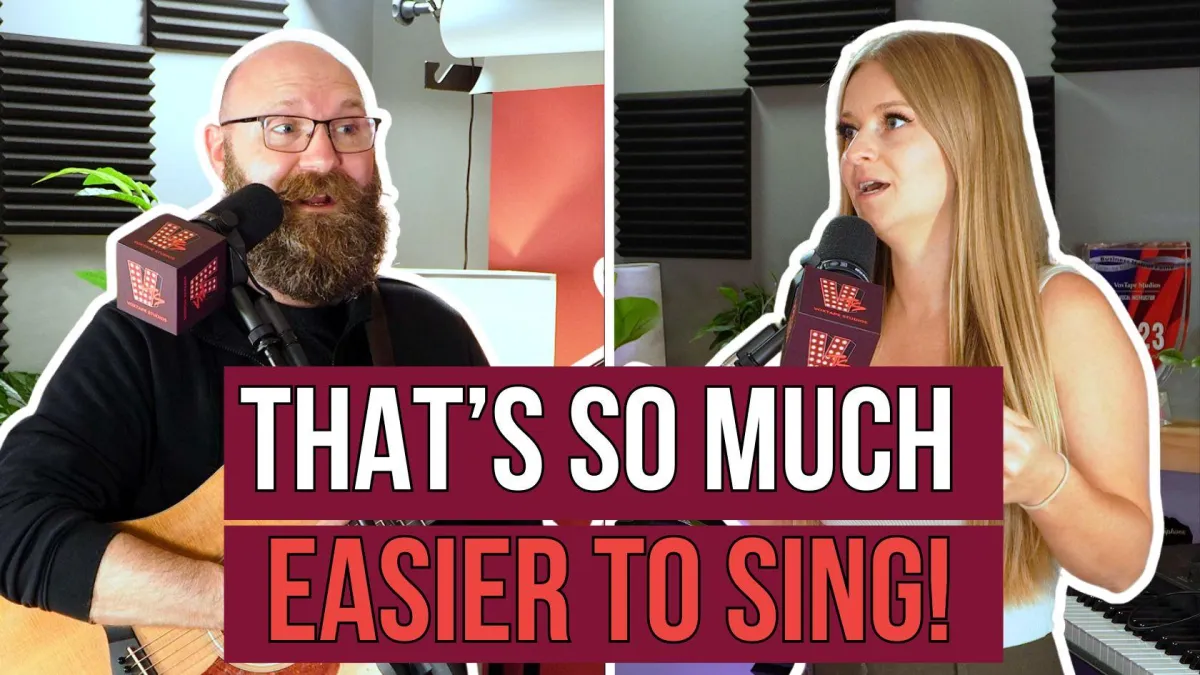
Studio Session: Polishing An Original Song with Doug Haag
Not everyone walks into a vocal session with a chart-topping dream or a big stage goal. Some people come in simply because they’ve got something to say—and that was Doug.
Doug’s musical journey started behind a drum kit, not a mic. But over time, songwriting became his outlet. Guitar in hand, porch light on, and a sleeping house around him—he wrote to process, not to perform. And for a long time, that was enough. Until it wasn’t.
“If my favorite songwriters hadn’t shared their work, I never would’ve been inspired. So maybe someone out there needs to hear mine.”
That shift—from private to shared, from personal to public—is one of the bravest moves an artist can make. And it’s why I was so excited to work with Doug on his original music. He wasn’t chasing perfection. He was chasing connection.
A Little Background on Doug
Doug started as a drummer, always supporting other musicians. Eventually, he picked up guitar and started writing songs—not to perform, but to cope. His originals were never meant to be shared.
But like many songwriters, Doug started to realize the power in being heard. He reached out to me because he wasn’t just looking for vocal technique—he wanted to bring his songs to life. He wanted to mean every word he sang. Doug and I initially met back in 2019 and did a couple voice lessons together. It was so great to reconnect with him after so many years and see how his music and voice has evolved.
What Blocks a Connected Vocal?
One of the first things we noticed during Doug’s performance was a very common, very subtle issue: tongue tension.
He was singing the word “heart,” but his tongue was already prepping for the R sound too early. That created tension in the back of the mouth, limiting the freedom of the “ah” vowel. It’s such a small thing, but that kind of muscular anticipation can completely change the tone and feel of a phrase.
What helped:
Sticking the tongue out slightly on the “ah” vowel
Delaying the R sound so the vowel stays open longer
Trusting the breath to shape the phrase naturally, not mechanically
Once we isolated the issue and reset the phrase, his tone immediately opened up. It was clearer, rounder, and—most importantly—more expressive.
💡 Tip: If you’re feeling like your sound just isn’t quite coming out check on your vowels and consonants, especially on words where the vowel is followed by r, m, and n consonants. Work on first separating the vowel from the consonant and then when you’re combining the two again be sure to linger on the vowel a bit longer.

Technique Is Only Half the Story
We didn’t just fix vowels or free up muscle tension—we also talked about emotional phrasing. Doug’s lyrics are incredibly thoughtful. But when he tried to “perform” them vocally, some of that honesty got lost. It started to sound shaped instead of felt.
So we worked on:
Singing like you’re saying something, not showing something
Letting the lyric lead the phrasing
Changing certain lyrics based on how they felt in the phrase
It’s not about sounding “perfect.” It’s about sounding honest. And Doug’s voice, once freed from the technical habits, did exactly that.
💡 Tip: If something doesn’t feel quite right in one of your original songs, consider changing the lyric! There are usually a ton of synonyms for the words that’s causing you issues, so see if you can replace that word with something else that sounds better or smoother in the context of the song. How it sings is always a really important thing to consider when writing songs!
Final Thoughts
The technical stuff? We can work on that. But your mindset—that willingness to be seen and heard—that’s what makes a singer become an artist.
🎧Want to see Doug’s shift in real time? Watch the full session here
Prefer Listening To The Podcast On Your Favorite Platform? Listen Below.


